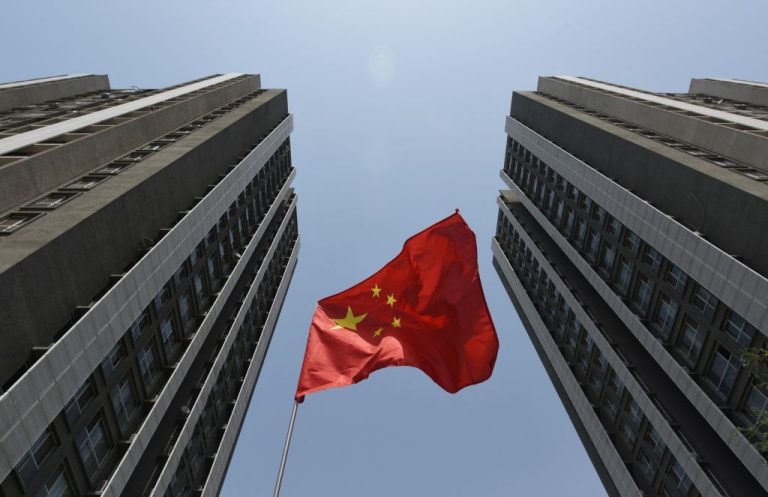In a rare admission, Chinese Communist Party (CCP) leader Xi Jinping, admitted during his year-end national address that China’s economy is in trouble.
Amidst a number of questionable claims, Xi admitted, “Some enterprises had a tough time. Some people had difficulty finding jobs and meeting basic needs.”
In reality, China’s economy has been buckling under a near perfect storm of economic crises.
Earlier in 2023 Chinese authorities admitted that the youth unemployment rate in the country had soared past 20 percent, prompting authorities to suspend releasing data that exposed the crisis.
In addition, China’s real estate industry experienced a year like none other, with property prices plummeting in many regions of the country and some of China’s largest developers, like Evergrande and Country Garden, filing for bankruptcy protection while leaving millions of ordinary citizens paying mortgages on properties that were never delivered.
Success
You are now signed up for our newsletter
Success
Check your email to complete sign up
According to a Nomura report, released in November last year, it’s estimated that there are “around 20 million units of unconstructed and delayed pre-sold homes,” in the country and that 3.2 trillion yuan, or US$440 billion, will be needed to finish and deliver these homes.
Nomura’s Chief China Economist, Ting Lu, wrote, “In our view, amid the collapsing property sector and widespread credit fallout among property developers, home buyers might get increasingly impatient while waiting for the delivery of their purchased new homes,” adding that, “At some point next year (2024), the issue of home delivery could turn into a social issue and endanger social stability, and Beijing may eventually need to significantly ramp up policy support.”
In addition, in a significant blow to the communist country, financial and ratings agency Moody’s, downgraded its outlook on the country’s credit rating from stable to negative.
A number of major companies have also been “decoupling” from China, moving operations to other countries, such as Vietnam and India, putting China’s status as the “world’s factory” in jeopardy.
READ MORE:
- Major Money Managers and Investors Wary of China Amidst Losses and Regulatory Scrutiny
- Moody’s Lowers Outlook on China’s Credit Rating, Citing Increased Debt Risks
- Italy Breaks Ranks With G7, Announces Departure From China’s Belt and Road Initiative
Decades of stagnation
While most economists believe that China — the world’s second largest economy — will hit its growth target of around five percent this year, it is still significantly below pre pandemic growth and experts are speculating that the country may be looking forward to decades of stagnation.
Derek Scissors, senior fellow at the American Enterprise Institute told CNN. “The 2024 challenge for the Chinese economy will not be GDP growth — that will likely be above 4.5 percent. The challenge will be that the only direction from there is down.”
Scissors believes China will experience slowing growth during the second half of the 2020s due in large part to the country’s troubled real estate sector coupled with an aging population.
Julian Evans-Pritchard, head of China Economics at Capital Economics, told CNN in late December, 2023, “Policymakers seem to believe that with a bit of stimulus and a turnaround in sentiment, the economy can get back on a stronger path,” however, “While there is some truth to this, we think that officials are underestimating the extent to which China’s slowdown is structural in nature and won’t be so easily reversed.”
“Most of the slowdown reflects a structural decline in productivity and income growth, rather than cyclical weakness that can be addressed through demand-side stimulus or other confidence-boosting measures,” Evans-Pritchard added.
READ MORE:
- Xi Touts ‘Reunification’ With Taiwan as ‘Inevitable’ During Mao Commemoration in Beijing
- Massive Earthquake Rocks China as Rescue Efforts Are Hampered by Frigid Temperatures
- China’s ‘Global Police State’: New Report Unravels the CCP’s Transnational Repression and Its Impact
2023 was disappointing
In a Dec. 14 post, financial giant J.P. Morgan wrote, “Over 2023, many events [in China] that were initially seen as potential turning points ended up disappointing.”
The private bank cited examples including the end of the CCP’s “zero-COVID” lockdowns, which did not spark the economic rebound communist authorities had hoped for, and the relaxation of real estate restrictions which failed to “prevent the property crisis from worsening.”
The bank does not believe that a large stimulus package is on its way however expects policymakers will be vigilant in addressing any further risks to financial stability.
China’s stock market sputtered in 2023 as well, prompting some of the world’s largest money managers, like BlackRock, to flee the country.
BlackRock began investing in China’s A-share market in 2019, but after just three years the company suffered a 30 percent loss on its investments in the country’s largely rigged stock market, equivalent to a staggering $260 billion.
As of September 2023, according to the China Securities Investment Funds Association (CSIFA), at least 2,344 private equity funds were canceled in China in 2023.
2024 does not look as though it will provide any relief for China’s economy with Nomura economists writing, “Despite a spate of stimulus measures announced recently, we believe it is still too early to call the bottom, and there might be another economic dip in spring 2024 due to a faltering property sector, the fading of pent-up demand, sagging external demand, excess capacity in some ‘green’ sectors and persistent geopolitical headwinds.”













